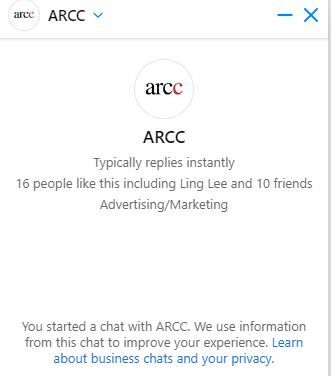
Digital Marketing in Singapore: Everything You Need to Know
What is digital marketing?
Digital marketing uses digital technologies such as websites, mobile marketing, search engines, social media platforms and other digital channels to promote products and services. Also known as online marketing or internet marketing, digital marketing campaigns may include website design and development, search engine optimisation (SEO), content marketing, pay-per-click campaigns (PPC), email campaigns, affiliate marketing and video or audio streaming.
The critical elements of digital marketing include targeting the right audience through keyword research, SEO activities to ensure visibility in search engine results pages (SERPs) and creating engaging content that resonates with potential customers. With the right combination of digital marketing channels, businesses can create an effective strategy to attract new customers while retaining existing ones.
Digital Marketing vs Traditional Marketing
Digital and traditional marketing are two distinct approaches to reaching customers and prospects. Digital marketing uses technology to target customers in an interactive, engaging way, while traditional marketing uses more static channels like print, radio, or TV advertisements.
Digital marketing has many advantages over traditional strategies; it is cost-effective, quickly reaches a large audience, allows for personalising messages and content, and can be measured easily with analytic tools. Digital marketing methods allow marketers to tailor messages to the specific needs of ideal buyers and track success rates in real-time.
On the other hand, traditional offline marketing may still be effective in specific scenarios. For example, direct mail campaigns can still deliver results if used properly. Additionally, TV commercials can make a lasting impression on potential customers. Depending on the product or service offered and the targeted customer, digital and traditional strategies should be considered when creating a comprehensive marketing strategy.
Why is digital marketing important?
Digital marketing allows businesses to reach larger audiences and target ideal customers efficiently. Digital marketers use techniques to reach potential customers, engage with existing customers and increase revenue. Using digital marketing activities and strategies, businesses can create effective campaigns to generate leads and sales. These tactics create a personalised experience for each customer, allowing them to feel connected to the company and its offerings.
Through various digital channels like email campaigns, social media platforms, video marketing and blog posts, businesses can directly communicate with their prospects or customers while building trust and loyalty. By analysing data collected from campaigns, marketers can identify areas for improvement and ensure that their strategies effectively achieve desired results. In today’s highly competitive business environment, digital marketing is an invaluable asset for any company looking for growth.
Types of Digital Marketing
Digital marketing is a powerful tool that can help businesses to reach their target audience, grow their customer base and increase sales. There are several types of digital marketing tactics and strategies available. For example, SEO strategy helps with website visibility by focusing on organic search results, while PPC allows companies to display ads directly on the search engine results page. Every kind of digital campaign leverages different channels to reach potential customers effectively.
1. Search Engine Optimization (SEO)
Search engine optimisation (SEO) is a digital marketing strategy that increases website visibility in organic search engine results. It involves optimising the content on websites with targeted keywords that are relevant to the topic and industry. Through careful research, businesses can identify which words and phrases are popular among their target audience and use these to create optimised content. Additionally, companies can improve a website’s ranking by improving its design and technical elements, such as page loading speed, meta tags, and backlinks. By utilising search engine optimization effectively, businesses can ensure that their website is always listed high up in the rankings when potential customers search for relevant terms. This will help them gain more organic traffic to their website, increase brand awareness and convert more sales over time.
2. Content Marketing
Content marketing involves creating and sharing valuable content to attract, engage and retain customers. This form of marketing consists of creating SEO-optimized blog posts, videos, infographics, case studies and more. It is essential to use keywords in the content to make it visible on search engines, but companies should also focus on creating content that resonates with potential customers. The content marketing strategy should be engaging and provide helpful information or insights that can help persuade customers to take action. Companies should also ensure they distribute content through the proper channels, such as social media posts, email lists and other relevant websites to reach their target audience.
3. Social Media Marketing
Social media marketing can help create brand awareness, build customer relationships, and promote products and services. Companies should first research their target audience to identify which social media platforms they should focus on and create content that resonates with the customers. They should also use relevant keywords in posts to make it easier for potential customers to find them. Additionally, marketers should regularly post engaging content such as videos, infographics and blog posts that provide helpful information or insights. Marketers can also use paid advertising campaigns or social media ads on social networks to reach more people and increase conversions. By implementing a social media strategy, businesses can increase brand visibility and drive more sales.
4. Pay Per Click (PPC)
Pay-per-click (PPC) is a digital marketing technique that allows businesses in Singapore to display search ads on search engines like Google and Bing. When users type in those words, companies bid on specific keywords to display Google Ads. PPC campaigns can be tailored to target specific geographic locations, demographics and interests. It also allows businesses to track their campaigns and measure the success of their efforts. With careful planning and execution, companies can create effective PPC campaigns that reach the right people at the right time and generate leads for their business.
5. Affiliate Marketing
Affiliate marketing is digital marketing in which businesses partner with other companies or individuals to promote their products and services. The affiliate is rewarded for each customer or visitor who clicks on their link and makes a purchase. This form of online marketing can be used to target potential customers in Singapore as it allows companies to reach out to influencers, bloggers, website owners, and other affiliates that have a wider audience interested in the company’s product or services. By leveraging the power of affiliate networks, businesses can build relationships with other websites and use them as a platform to market their products and services. Affiliate marketing can also help companies generate leads by creating content such as reviews, tutorials, discount codes, and more that attract prospective customers.
6. Native Advertising
Native advertising is an online advert that appears as part of the natural flow of content on websites, mobile devices, social media platforms and other digital media online channels. It uses relevant content to reach the target audience in Singapore. Native ads are designed to blend seamlessly with the surrounding content, making it easier for them to be seen by users. This type of advertising can be used to promote blog posts, videos, product reviews and more. Unlike standard forms of advertising, such as display ads, native ads are less intrusive as they appear as part of the content and not as separate entities. This makes them more appealing to users who are likely to click on them instead of ignoring them. Companies looking for innovative ways to reach their target audience should consider using native advertising in their digital marketing strategy.
7. Marketing Automation
Marketing automation is a powerful technique to streamline marketing processes and maximise efficiency. It automates repetitive tasks such as sending emails, creating targeted campaigns and analysing customer data. This allows the marketing team to focus on more creative tasks, such as developing content ideas and strategising new campaigns. With marketing automation tools, companies can also track user behaviour, monitor results in real-time and optimise their campaigns for higher ROI. It also helps ensure prospective customers receive relevant messages at the right time, making it easier for them to convert into paying customers.
8. Email Marketing
Email marketing involves sending promotional emails and is one of the most cost-effective methods of reaching prospects and driving conversions. Singapore business owners can use this technique to build relationships with their customers, keep them informed about new products and services, promote special offers, get feedback, and even drive sales. For maximum benefit, it is essential that businesses craft well-written emails with appropriate subject lines and a clear call to action. Additionally, email segmentation should be used so that only relevant messages are sent to specific groups of people.
9. Online PR
By leveraging the power of digital media, businesses can reach out to more potential customers and build relationships with them. This form of marketing involves creating content that shares newsworthy information about the business, such as new products or services, upcoming events, awards or accolades won by the business, etc. Online PR also helps businesses to engage with influencers who can help spread the word about the brand and amplify its reach. Additionally, online PR helps drive website organic traffic, generate leads, and increase sales.
10. Search Engine Marketing (SEM)
Search engine marketing (SEM) is a form of digital marketing involving various strategies and tactics to promote a website or business on search engine results pages (SERPs). It can include paid advertising through search engines such as Google Ads. In Singapore, companies can use SEM to increase their visibility online and reach potential customers in the country. By understanding the target audience’s needs and interests, marketers can create effective campaigns to help them achieve their goals. Additionally, marketers need to keep up with the latest trends in SEM by regularly monitoring their campaigns’ performance and testing new strategies.
11. Instant Messaging Marketing
Instant messaging (IM) marketing uses instant messaging platforms such as WhatsApp and WeChat to engage with prospective customers. It is especially popular in Singapore, where mobile devices are widely used for communication and daily activities. IM marketing can be used for various purposes, from direct messages about promotions or discounts to customer service inquiries. For example, businesses can send automated messages when customers make purchases or respond to their queries promptly. Companies can also leverage the platform’s features, like group chats, multimedia messages, and more, to create an engaging customer experience. IM marketing allows companies to reach their target audience in real-time and provide a personalised experience. However, companies must remember that specific guidelines must be followed when using IM platforms for marketing purposes in Singapore.
Does digital marketing work for all businesses?
Digital marketing is an effective tool for businesses of all sizes, as it can help increase organic traffic to reach the target audience quickly and efficiently. It is a cost-effective way to promote products and services and build brand awareness and loyalty. Additionally, with the rise of mobile devices, businesses can leverage mobile marketing tactics such as SMS campaigns to reach potential customers.
For a digital marketing strategy to be successful in Singapore, have a clear plan outlining goals and objectives. It must also understand its target audience and how best to engage with them online. Additionally, businesses must ensure that their campaigns are tailored towards achieving their desired results by optimising content for specific keywords or platforms. When implemented correctly, digital marketing can provide significant returns on investment, making it an essential part of any business’s overall strategy.








